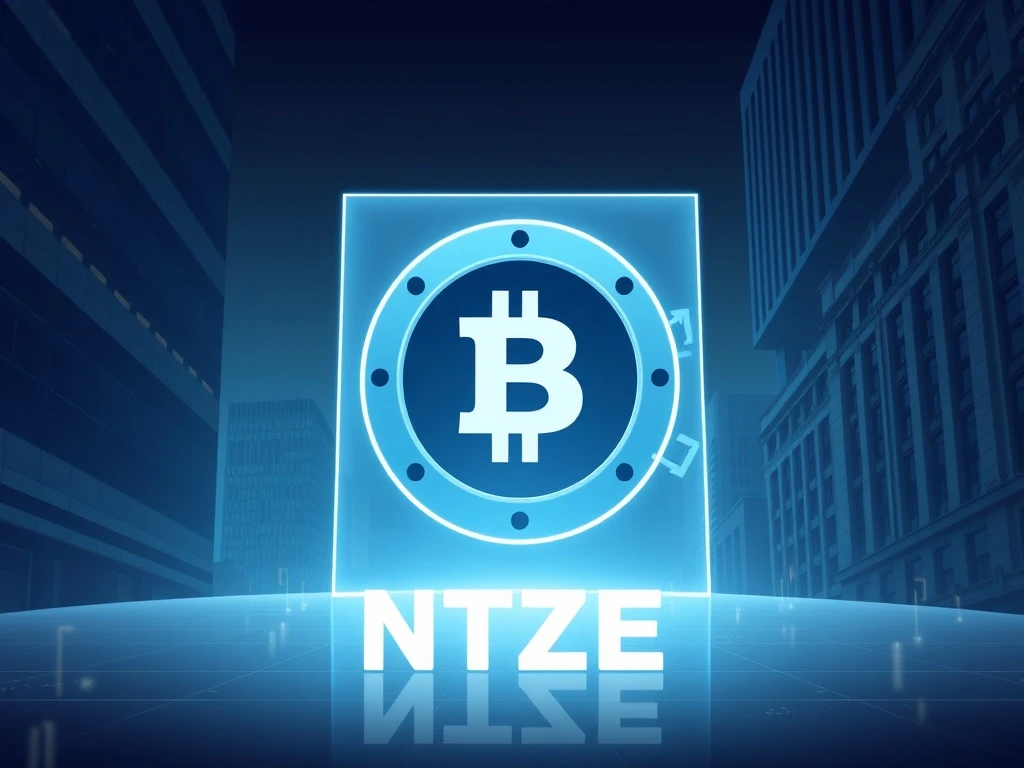BitGo IPO Accelerates Institutional Crypto Adoption with Monumental $90B Custody Filing

The cryptocurrency world is witnessing a significant milestone. BitGo, a leading crypto custody firm, has officially filed for a US initial public offering (IPO). This monumental move underscores the accelerating pace of institutional crypto adoption and highlights the increasing demand for secure digital asset infrastructure. The filing marks a pivotal moment for the industry, suggesting a new era of mainstream financial integration for digital assets.
BitGo IPO Signals New Era for Digital Assets
BitGo, a prominent player in the digital asset space, recently submitted its Form S-1 registration with the US Securities and Exchange Commission (SEC). This crucial SEC filing confirms the company’s intention to list its Class A common stock on the New York Stock Exchange (NYSE) under the ticker symbol “BTGO.” Consequently, this development provides investors with a direct avenue into the burgeoning cryptocurrency infrastructure market. The firm, based in Palo Alto, California, reported a substantial $90.3 billion in assets on its platform as of June 30, 2025. This impressive figure demonstrates BitGo’s significant footprint in the market.
Furthermore, BitGo serves a diverse and expansive client base. It boasts over 4,600 entities and more than 1.1 million users spread across 100 countries. The company’s platform supports an extensive range of digital assets, exceeding 1,400 different cryptocurrencies. Its clientele includes various segments: crypto-native firms, established financial institutions, governmental bodies, and high-net-worth individuals. Therefore, its broad appeal showcases its robust and versatile offerings. BitGo also emphasizes security and compliance. It maintains $250 million in insurance coverage. Additionally, the firm has successfully completed Service Organization Control (SOC) 1 and SOC 2 audits. These audits attest to its strong internal controls and operational integrity.
Bolstering Crypto Custody with Robust Infrastructure
The core of BitGo’s business lies in its secure crypto custody solutions. This service is vital for institutions looking to engage with digital assets safely. The demand for such secure infrastructure continues to grow. BitGo’s offerings extend beyond simple storage; they encompass trading, staking, and transfer services. These comprehensive solutions cater to the complex needs of institutional clients. Therefore, the company’s expansion reflects a broader industry trend. As more traditional financial players enter the crypto space, the need for enterprise-grade security and regulatory compliance becomes paramount. BitGo aims to meet these stringent requirements.
Significantly, BitGo’s co-founder and CEO, Michael Belshe, will retain substantial control over the company. This is achieved through a dual-class share structure. Class B shares, held by Belshe, carry 15 votes each. Conversely, Class A shares, offered in the IPO, hold one vote each. This arrangement classifies BitGo as a “controlled company” under NYSE rules. Consequently, it exempts the firm from certain corporate governance standards typically applied to public companies. This structure ensures stability in leadership during its transition to a public entity.
Accelerating Institutional Crypto Adoption
The timing of the BitGo IPO aligns with a period of rapid institutional crypto adoption. Many firms are now seeking public market exposure to the digital asset sector. BitGo has strategically positioned itself to capitalize on this trend. For example, its European arm recently secured an extended license from Germany’s Federal Financial Supervisory Authority (BaFin). This license allows it to offer a full suite of services, including trading, custody, staking, and transfers, under the EU’s pioneering Markets-in-Crypto-Assets (MiCA) framework. This compliance with international regulations boosts its appeal to global institutions.
Furthermore, several other crypto firms have recently experienced successful public market debuts. Stablecoin issuer Circle, crypto exchange Bullish, and blockchain-based lending firm Figure are notable examples. These successes demonstrate investor appetite for well-regulated and established companies within the digital asset ecosystem. This positive market sentiment creates a favorable environment for BitGo’s entry. Ultimately, these public listings legitimize the crypto industry further.
Navigating Regulatory Shifts: The Impact of BitGo’s SEC Filing
The regulatory landscape significantly influences the growth of digital asset infrastructure. Recent shifts in US policy have particularly favored institutional engagement. Earlier this month, US Bancorp relaunched its digital asset custody services. This action followed a regulatory rollback by the Trump administration. This reversal rescinded an SEC rule that previously required banks to hold capital against crypto-related activity. US Bancorp initially launched its service in 2021 with NYDIG but paused it due to compliance constraints. Now, with the rule rescinded, the bank has confidently reentered the crypto space. This demonstrates a more permissive environment for traditional finance.
Moreover, a growing number of traditional financial institutions are actively moving into crypto custody. In July, Germany’s largest bank, Deutsche Bank, announced plans to allow its clients to store cryptocurrencies, including Bitcoin, starting next year. This move signifies a major endorsement from the traditional banking sector. Additionally, in August, reports indicated that Citigroup was weighing plans to offer cryptocurrency custody and payment services. These developments collectively signal a robust trend. They highlight the increasing integration of digital assets into mainstream financial systems. The BitGo SEC filing is therefore not an isolated event; it is part of a larger narrative of institutional acceptance and expansion within the digital asset market.
The Future of Secure Digital Asset Infrastructure
The BitGo IPO represents more than just a company going public. It symbolizes the maturing of the digital asset industry. As institutions increasingly commit to cryptocurrencies, the demand for secure, compliant, and scalable digital asset infrastructure will only intensify. BitGo, with its extensive client base, broad asset support, and strong security measures, is well-positioned to meet these evolving needs. This public offering will likely inspire further investment and innovation in the crypto custody sector. Ultimately, it strengthens the bridge between traditional finance and the decentralized world. The move by BitGo underscores the confidence in long-term growth for digital assets. It also sets a precedent for other crypto-native companies contemplating similar public market ventures.









